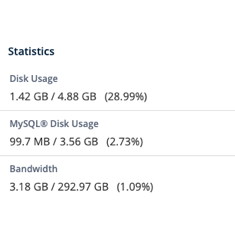Related Content
October 20th, 2012
There is a lot of advice in the blogosphere on how to make your blog better or more popular. I’m not so sure there is a one to one relationship between quality and popularity which many people assume. Sometimes increased popularity is uncomfortable or problematic, whereas increased quality is almost entirely positive. One common piece of advice bloggers give other bloggers is what plugins to use, particularly WordPress plugins.
When I first started blogging I tried all sorts of different plugins. Some were cosmetic, some were social, some added features, some fought spam, some were just crap that made my blog run worse. I now think more plugins, more problems and the related post plugin I was using lead to my blog being exploited.
There are a lot of related post plugins, I’ve now tried several and I’ve also spent entirely too many hours editing and retagging posts something I’m once again doing to start 2019. In theory related posts is a valuable feature, it helps users find more content they might enjoy, it helps promote older content, it might even help with search engine performance, but having tried Yuzo, YARPP, DISQUS, the Facebook Recommendation Bar, and my DIY solution. I’m not sure if I’m in a hurry to try yet another recommend solution.
YARPP plugin
The Yet Another Related Post Plugin was very popular I used it for a long time. It caused rendering issues with DISQUS and the social sharing buttons plugin I was using. I was a big fan of DISQUS and used it for many years, in 2012 it too added a recommendation algorithm. But then at some point it got blocked by the Chinese government so it had to go.
Facebook plugin

Facebook is the largest online social network, so when they released a new official WordPress plugin a lot of people rushed to install it. It has a lot of features, many I have no interest in using. I’ve been testing the Recommendation Bar and it doesn’t produce particularly relevant results. It is supposed to recommend material my Facebook Friends like, which for me always seems to be a couple photos I posted years ago. It doesn’t matter what my most recent post is about, the Facebook Recommendation Bar always recommends the same thing. YARRP and DISQUS consider what post is actually being read when recommending related content. Facebook purely goes by popularity, even if the likes are half a dozen years old.
DIY Related Posts
I never thought too much before about my DIY solution. I just picked some posts that I thought were high quality or that analytics revealed were particularly popular over an extended period of time and added them as links in their own category in my sidebar. I then used wp_list_bookmarks to display five posts from this subset. My handcoded solution does not consider what post is being currently read, but I have total control over which posts get recommended unlike every other option.
Taxonomy Matters for Related Content
I’ve spent too much time editing and re-tagging posts in the quest for the illusive optimal WordPress taxonomy. I long ago gave up on the Facebook WordPress plugin. It and JetPack just slowed down post publishing to a crawl. I am definitely running less plugins than I was in the past. I’ve also made a lot of changes to this blog which are cosmetic but I also continue to heavily edited the content in order to make it more useful and professional and possibly even discoverable in search engines.
Illusive Popularity
I’m still not trying to be popular, however I once was quite possibly an expert in search engine optimization of WordPress blogs, I’m not Yoast, but I can take a website from out of the top 100 to number one for a chosen keyword and one of the tools I use is definitely WordPress. I’ve done a lot of work with PHP, JavaScript, HTML, CSS, social media, and structured metadata as well. Most Facebook users don’t know that Facebook is built on those technologies, all people want to do is share content and be ‘liked’.
Principals Over Popularity
My post-MBA career has continued to not go well but I have stuck to my principals, I have regrets, I definitely learned a lot from my time at the Sauder School of Business. This blog was started while I was an MBA student, just before I went to China on exchange, as a result MBA and China were two of my five most frequently used tags. Now I’ve spent so much time editing old blog posts and even deleting many that I’ll have to revisit what passes for popularity on this blog.
Cornerstone Content
I finally installed Yoast’s SEO plugin. One of the techniques they advocate is choosing a few key posts and linking repeatedly to these key posts. It is a very sensible and common tactic but having edited hundreds of posts I think other technical issues are holding me back. I have a lot of old hardcoded static HTML content that I should finally bring into WordPress and I should also completely replace my theme and taxonomy again to make it more mobile friendly, use HTTPS, and use an entire different link structure. Most SEO experts would also advise getting rid of the subdomain.
Carefully Choose Your Links
Yoast’s preferred related post solution is to analyze your content and choose your links and more importantly your link text yourself. The Pro version of the plugin provides a recommendation algorithm but since your first and last paragraph are the most important you should tweak both extensively. This also means the first inline link is the most important in the entire post and the links at the end of the post are the next most important links. While editing hundreds of posts I re-wrote a lot of introductions and calls to action, so if you have any thoughts or questions on related content you can leave them below.
This entry was originaly posted on , it was last edited on and is filed under: Technology and tagged: Disqus, Facebook, Plugin, WordPress, YARPP.




